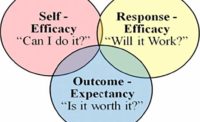Should you stop using rewards?
The question has come up in light of Alfie Kohn's 1995 book, "Punished by Rewards: The Trouble with Gold Stars, Incentive Plans, A's, Praise, and Other Bribes." And at the second annual Behavioral Safety Now conference held in Houston last October, several attendees listened to Dr. Aubrey Daniels, author of the book, "Bringing Out the Best in People: The Astonishing Power of Positive Reinforcement," and wondered whether Dr. Daniels was advising people to stop using rewards, recognition, and group celebrations.
Safety professionals need to understand how positive reinforcers--the kind Dr. Daniels talks about--differ from other positive consequences. More important, safety pros need to convince others of the astonishing power of rewards, celebrations, and recognition, as well as positive reinforcement.
Should you stop using rewards?
Technically, a behavioral consequence is a "positive reinforcer" only if it increases the frequency, intensity, or duration of the targeted behavior. In reality, it's usually impossible to know if this happens. For example, the financial bonus a person receives for demonstrating better safety performance last month does not necessarily influence any behavior. And the behavior most often reinforced by recognition ceremonies like a steak dinner celebrating a safety milestone is attendance at the dinner.When Dr. Daniels warned the Houston audience not to presume their recognition, feedback, and celebration programs were "positive reinforcers," this is what he meant. Just because you give a person a positive consequence, you do not necessarily influence the behavior you'd like to improve. And if you don't improve targeted behaviors, you don't truly have a positive reinforcer.
This is why I use the term "reward" instead of "positive reinforcer." A reward is a positive consequence given to an individual or a group with the intention of improving or maintaining desired behavior. The reward can be one-on-one recognition, a group celebration dinner, a positive feedback presentation, credits toward the purchase of a catalogue gift item, a financial bonus, or a small trinket containing a safety logo.
A reward given long after the desired behavior has occurred is unlikely to have a direct effect on that behavior. Some rewards are not even associated with specific behaviors. The behavior most likely reinforced by awarding companies with a safety improvement placard is someone walking to the stage to receive the prize and public recognition.
The strict behavioral approach to safety does not recognize much, if any, value in rewards. If a behavior analyst observes no change in a target behavior when a particular consequence follows it, then that consequence is considered useless in that situation and no longer is applied.
But here's my point: even if a reward does not improve behavior directly, it has other special benefits. This is why I urge you not to decrease your use of recognition, feedback, and celebration processes.
What rewards do for us
If given genuinely, interpersonal recognition, group celebration, and positive feedback improve internal, unobservable aspects of people. They make you feel better. This is a worthwhile outcome by itself. Plus, it's likely that safety-related behaviors will be indirectly improved.Let me explain by asking:
- How do you feel after being rewarded for exemplary performance?
- Do you get a boost in self-esteem? Feel better about yourself?
- Do you feel more competent at the task singled out for the reward?
- Do you sense a greater degree of personal control over the targeted activity?
- Are you more optimistic that you'll be successful in the future?
- Do you feel more connected with other team members who attended the celebration event?
According to substantial psychological research, when any of these internal feeling states are increased, a person's willingness to look out for the welfare of others is also increased. So whether or not a reward increases the behavior it follows, it is apt to improve one or more feeling states that make people more likely to actively care about the safety of others.
This justifies using rewards, even when behavior is not directly influenced. Delivered appropriately, rewards always bring out the best in people because they improve those feeling states--self-esteem, self-efficacy, personal control, optimism, and belongingness--that make it more likely for an individual to help another person. Look for opportunities to reward quality performance, and deliver the reward well.




